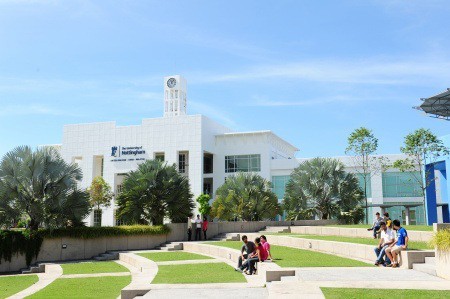Genuinely international- Going Global 2014
Universities have had an international outlook since the beginning. Whilst some aspects of internationalisation have moved on since the middle ages some principles remain clear. Including the need to look beyond income generation as a motive. As part of Going Global 2014, the British Council’s international HE conference, I’m involved in a workshop session on “Internationalisation – practice and rationales”:
The workshop will start with an outline of the key trends in internationalisation and two reviews of international strategy at a university level. The primary activity during the workshop will be a Cafe Scientifique. Workshop attendees will participate in a range of deep-dive explorations around key themes in internationalisation bought to life though practitioner led discussion. Topics for roundtable discussion will be drawn from topics including: partnership development, joint initiatives, online learning, student recruitment, communication strategy, liaison offices, regional specialisation and diverse forms of transnational education.
Each of these discussions will begin with a description of an internationalisation practice at a university along with the strategic rationale for that activity. From this starting point, an interactive discussion can explore this practice in a broader context.
Participants in this workshop will learn about diverse approaches to internationalisation and the rationale for their use. Through interactive activities you will be able to explore options around your own international strategy. Furthermore, though dialogue with practitioners from the global South, North, East and West, you will gain insight into some of the social, cultural, geographic and economic drivers that shape internationalisation strategies the world over.
Whilst the workshop format is novel for me the issues are really pertinent as the University of Nottingham has been at the forefront of international activity for decades and has grown the activity to the point where we have over 9,000 international students at our campus in the UK, nearly 11,000 students studying at our campuses in Malaysia and China and over 20% of UK-based students engaged in some form of mobility.
We have many international staff, aspects of the curriculum are highly internationalized, we are members of international networks and have many international research and knowledge transfer partnerships as well as a range of focused international partnerships covering articulations and in country delivery as well as capacity development.

A genuinely internationalized university brings huge benefits for its home country as well as those in which it operates. It is essential to be clear about motivations and objectives though. Whilst some governments may see both economic and soft power benefits from exporting HE and others may welcome incoming universities’ contributions to growth and capacity building, the impact of universities’ international activities is complex and multi-faceted and the practicalities of delivery are hugely challenging.
Establishing an overseas campus is not straightforward. Challenges range from building the infrastructure to restructuring institutional and local governance. Legal issues, financial arrangements and developing local management can take time and significant effort, as can coming to terms with an entirely new academic, political and cultural framework.
We have built close relationships based on trust and taken the long-term view with our partners. Major new opportunities in teaching, student exchanges and research collaboration have hugely enriched Nottingham’s environment and ethos; our campuses in Asia confer great benefits in terms of the student experience, and this can be equally transformative for students from the UK who spend time studying in China and Malaysia.

To leverage the full benefit of an international campus, though, an institution must have a strategy that goes beyond thinking about money. The management input required is high, and there are inevitably opportunity costs.
The investment is substantial, but it is worth it for a university committed to an international vision that goes beyond generating income from overseas student fees. Such a global footprint therefore has real impact for the institution, its students, staff and stakeholders as well as for the governments and society at home and in the countries with which it is deeply engaged. This real and comprehensive international impact though is therefore about much more than just the money.
As part of this session therefore I will be hoping to look at these issues of genuine internationalisation, the challenges faced and the real and lasting impact a committed and fully engaged internationally-focused university can have across all levels, from student to government.
If you are coming to Going Global I hope that isn’t too much of a spoiler. If you aren’t then I can only apologise for reminding you.
(#GoingGlobal2014 is the hashtag for all the excitement of conference attendance from afar)












Reblogged this on Registrarism and commented:
These are some of the issues discussed at the #GoingGlobal2014 session I was involved in yesterday